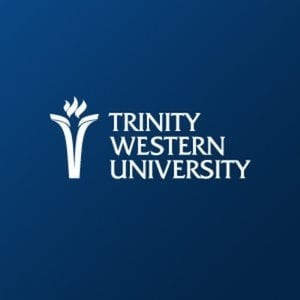Musical Studies at Trinity Western University offers students a comprehensive and immersive experience designed to cultivate their artistic talents, deepen their understanding of music theory and history, and prepare them for diverse careers in the music industry. This program provides a robust curriculum that combines rigorous academic coursework with practical performance opportunities, enabling students to develop both their technical skills and their expressive capabilities. Students will engage with a broad spectrum of musical genres, from classical to contemporary, exploring different styles, traditions, and cultural contexts to foster a well-rounded musical education. The program emphasizes individual attention and mentorship from experienced faculty members who are committed to nurturing each student's unique musical voice.
Throughout their studies, students will participate in various ensemble performances, masterclasses, and recitals, gaining invaluable experience in live performance and collaborative work. The curriculum includes courses in music theory, ear training, music analysis, composition, music technology, and music history, providing a solid foundation in both the practical and scholarly aspects of music. In addition, students have access to modern facilities and resources, such as recording studios and practice spaces, to support their creative pursuits. The program also encourages students to explore interdisciplinary connections, integrating music with other arts and fields of study for a holistic educational experience. Graduates of the Musical Studies program will be well-prepared for careers as performers, educators, composers, music administrators, or further academic study in graduate programs. The program at Trinity Western University aims to inspire a lifelong passion for music and equip students with the skills, knowledge, and confidence to excel in the dynamic world of music.
The Bachelor of Music program at Trinity Western University offers students a comprehensive and rigorous education in both performance and music theory, preparing them for a variety of professional pursuits in the music industry. This program emphasizes the development of technical proficiency, artistic expression, and a deep understanding of musical styles and history. Students have opportunities to specialize in areas such as performance, composition, or music education, allowing them to tailor their studies to their personal interests and career goals. The curriculum includes coursework in music theory, ear training, music history, and repertoire studies, complemented by practical instruction in voice or instrument performance. Students participate regularly in ensemble performances, recitals, and masterclasses, gaining valuable stage experience and collaboration skills. The program fosters a supportive community where students can work closely with experienced faculty who are active performers and researchers in the field of music. In addition to academic coursework, students are encouraged to engage in community outreach, church music ministries, and internships to broaden their professional experience. The Bachelor of Music at Trinity Western University aims to cultivate well-rounded musicians equipped with both technical skill and artistic integrity, ready to pursue graduate studies, perform professionally, or contribute meaningfully to their communities through music. With state-of-the-art facilities and a vibrant campus life, students are inspired to grow as musicians and individuals in a nurturing environment that upholds the university's values of faith, excellence, and service.
Program Requirements: The Bachelor of Music degree at Trinity Western University is designed to provide students with comprehensive training in musical performance, theory, history, and composition. Prospective students must demonstrate a strong foundation in music through prior coursework or audition, typically including proficiency in at least one instrument or voice. A minimum of 120 semester credits is required for graduation, including general education courses, core music courses, and applied lessons. Students are expected to complete core music theory courses such as Music Theory I, II, and III, which cover harmony, counterpoint, and analysis. Music History courses encompass Western musical development from antiquity to modern times, encouraging students to contextualize their musical knowledge within historical frameworks. Performance ensembles, including choir, orchestra, or student recitals, are mandatory components that develop practical skills and artistic expression. Students must participate in ensemble performances each semester and complete a mid-program and final recital performance. Composition coursework focuses on developing skills in musical creation, including coursework in contemporary techniques, electronic music, and orchestration. Applied lessons are tailored to individual instruments or voice and require weekly private instruction. Students also engage in sight-singing and ear training to enhanceural musicianship. The program culminates in a capstone project, such as a senior recital, accompanied by a written thesis detailing the research and conceptual process behind the performance. Additional requirements include maintaining a minimum GPA of 2.0, attendance at masterclasses and workshops, and completion of a professional development seminar. Students are encouraged to participate in community outreach and concert events to gain performance experience. Internships or practicum placements may be arranged for students interested in careers in music education, therapy, or administration. The program also emphasizes ethical practice in music-related fields, fostering a holistic understanding of music as both an art form and a profession.
Want to improve your English level for admission?
Prepare for the program requirements with English Online by the British Council.
- ✔️ Flexible study schedule
- ✔️ Experienced teachers
- ✔️ Certificate upon completion
📘 Recommended for students with an IELTS level of 6.0 or below.
Financing for the Bachelor of Music program at Trinity Western University is designed to accommodate a diverse range of students through multiple funding options. The university offers competitive scholarships specifically for music students, including music excellence scholarships and departmental awards that recognize merit and talent. Additionally, Trinity Western University provides entrance scholarships that can help reduce the overall cost of tuition for qualified applicants. Students are encouraged to explore external funding sources such as government grants, bursaries, and private scholarships, which can be combined with university aid to support their educational expenses. The university's financial aid office offers personalized assistance in navigating available options, applying for financial assistance, and understanding the various funding deadlines. Tuition fees for the program are established annually and are comparable to similar programs within the region, with detailed fee information available on the university’s official website. Students may also consider work-study opportunities and part-time employment on campus to supplement their income during their studies. Manitoba residents and international students may have different eligibility criteria and funding options, given the differences in provincial and federal programs. Trinity Western University emphasizes transparency and guidance in its financial planning resources to ensure students can make informed decisions about financing their music education. The university is committed to supporting students in managing the costs associated with their studies through comprehensive financial planning services. Overall, the program’s financing structure aims to make music education accessible by combining scholarships, financial aid, work opportunities, and flexible payment plans where applicable.
The Bachelor of Music program at Trinity Western University is designed to prepare students for a professional career in music through a comprehensive curriculum that blends performance, music theory, music history, and composition. The program emphasizes both technical proficiency and expressive artistry, providing students with the skills necessary to excel in various musical settings, including solo performance, ensemble work, and collaborative projects. Students have access to state-of-the-art facilities, including practice rooms, recital halls, and recording studios, to hone their craft. The faculty comprises experienced musicians and educators committed to fostering artistic growth and scholarly inquiry. The program offers various specializations, such as Performance, Composition, and Music Theory, allowing students to tailor their studies according to their career aspirations. In addition to coursework, students are encouraged to participate in concerts, recitals, and masterclasses, providing practical performance experience and networking opportunities within the music community. The curriculum also includes music technology and music business courses, equipping graduates with diverse skills relevant to the modern music industry. Trinity Western University’s strong community emphasis promotes collaboration among students, faculty, and visiting artists, enriching the learning experience. Graduates of the program have gone on to pursue graduate studies or careers as performers, composers, music educators, and industry professionals. Overall, the Bachelor of Music at Trinity Western University aims to develop versatile, well-rounded musicians prepared to contribute meaningfully to the cultural and artistic landscape.




